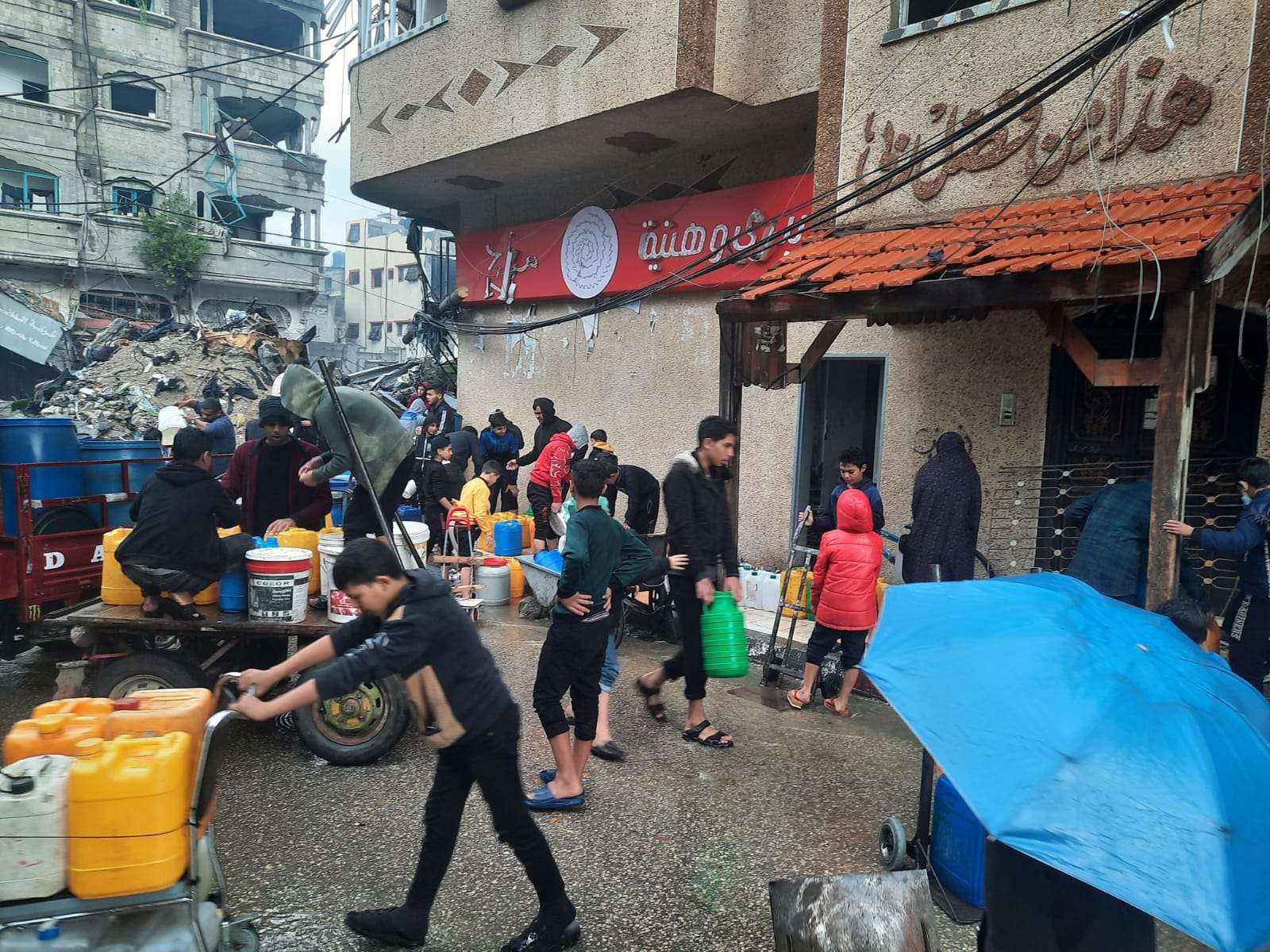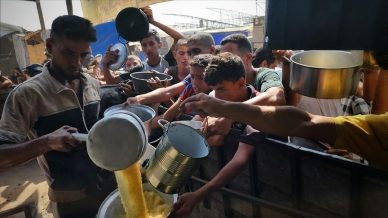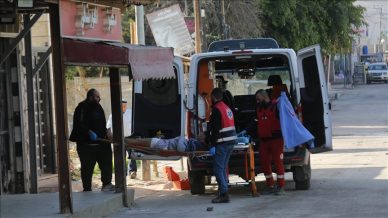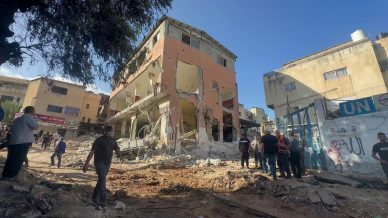GAZA, (PIC)
Areas of Gaza City and the northern Gaza Strip are facing a horrific tragedy resulting from the catastrophic shortage of drinking water sources and its prevention, which represents an actual death sentence, according to the Euro-Mediterranean Human Rights Monitor.
The Euro-Med Monitor highlighted in a statement on Monday that thirst is invading areas of Gaza City and its north in a shocking manner due to the cutting off of water supplies to the Gaza Strip and the systematic and deliberate Israeli shelling of wells and water sources, in addition to the shortage of fuel needed to operate water transfer and distribution stations.
It stressed that this constitutes a war crime, in addition to being a form of genocide committed by Israel against the civilian population.
The Euro-Med Monitor warned that the shortage of drinking water in the Gaza Strip has become a matter of life or death, as residents are forced to use unclean water from wells, which has contributed to the spread of communicable and infectious diseases, especially with the power outages that have led to a shortage of water supplies.
At the end of last week, the complete destruction of the main “Balad” and “Al-Rimal” tanks in Gaza City was documented as a result of the Israeli army’s excavation of them during its military ground operations in the area.
The excavation extended to the “Balad” tank, which includes a water well and a storage facility for water pipeline maintenance in Gaza City, in addition to administrative offices of the Water Department. The “Al-Rimal” tank at the intersection of “Al-Jalaa” and “Al-Wahda” streets was also excavated, which includes offices of the Sanitation Department and a storage facility for sewage network maintenance.
The destruction of at least 12 wells by Israeli bombardment has led to a severe and unprecedented water shortage in Gaza City.
According to the Palestinian Water Authority, the ongoing Israeli military attacks have destroyed the water infrastructure in the Gaza Strip, including at least 65% of the water wells in the city of Gaza and northern Gaza.
The Euro-Med stated that the crisis is exacerbated by the Israeli authorities’ continued imposition of strict restrictions on the access of humanitarian supplies to the Gaza Strip, especially in the areas of Gaza City and northern Gaza. This includes the necessary quantities of fuel to operate water and sanitation facilities.
It added that the suffering from the lack of drinking water in northern Gaza is more severe and catastrophic, as the residents of Jabalia refugee camp have not tasted clean drinking water since the beginning of the Israeli military attacks.
The elderly man, Alian Fares Abdulghani ,73 years old, who lives in Block 4 in the middle of Jabalia camp, said to the Euro-Med team, “We are forced to drink salty water, which is also difficult to obtain.”
Abdulghani explained that the Israeli army destroyed the only two desalination plants in the camp, which are the Shomar and Tiberias stations, since the early days of the military attacks.
He reported that the Israeli bombardment, coupled with the lack of fuel necessary for the operation of other stations located far from the camp, raised the price of one gallon of water from one Israeli shekel -$0.27- to four shekels -$1.08-. However, the water supply was completely cut off after a few days.
The Euro-Med monitor warned that excessive consumption of saline water unfit for drinking, along with its contribution to stomach diseases, gastrointestinal disorders, vomiting, and persistent diarrhea, leads to increased blood pressure, kidney diseases, and the risk of stroke, ultimately resulting in severe dehydration of body tissues, especially the brain.
They mentioned that if drinking water is extracted from wells without treatment, it may disrupt the body’s salt balance and lead to dehydration, with children and the elderly being particularly vulnerable due to their weakened immune systems. In such cases, gastrointestinal illnesses without access to rehydration solutions can lead to death.
Concerns are growing about waterborne and infectious diseases such as cholera and chronic diarrhea, especially due to the shortage of safe drinking water, particularly after rainfall and floods during the winter season.
In December of last year, the Euro-Med monitor conducted an analytical study involving a sample of 1,200 individuals in Gaza to assess the impact of the humanitarian crisis faced by the population. The study revealed that 66% of the study sample suffered or had suffered from gastrointestinal diseases and diarrhea due to the lack of available drinking water.
The study noted that the average water availability, including drinking, bathing, and cleaning water, is 1.5 liters per person per day in the Gaza Strip, which is 15 liters below the basic water requirements for survival according to international standards.
The Euro-Med reiterated that international humanitarian law prohibits the attack, destruction, or disablement of essential objects and facilities necessary for the survival of civilian populations, including drinking water facilities and networks.
Furthermore, the deliberate use of starvation and thirst as a method of warfare is strictly prohibited and considered a grave breach and a prohibited collective punishment. It is also a violation of Israel’s obligations as the occupying power in Gaza under international humanitarian law to provide for the needs and protection of the population.
The Rome Statute of the International Criminal Court states that intentionally starving civilians by depriving them of essential supplies, including deliberately obstructing relief supplies, constitutes a war crime.
The Observatory stated that the severe and ongoing deprivation of the civilian population in the Gaza Strip of sufficient and safe drinking water amounts to a form of genocide committed by Israel against them since October 7th of last year. This causes severe harm to the Palestinian civilian population in the Gaza Strip and subjects them to living conditions intended to destroy them physically. These actions are in violation of the Convention on the Prevention and Punishment of the Crime of Genocide, the Rome Statute of the International Criminal Court, and relevant international judicial rulings.














